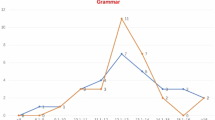Abstract
This study proposes the need to introduce ELSI (Ethical, Legal, and Social Issues) education on digital technologies in school education, particularly primary and secondary education. Currently, various advanced technologies such as artificial intelligence and data science, are being used in our daily lives. New ethical, legal, and social issues arise with the use of such new technologies, and the concept of ELSI, which examines these issues, is gaining popularity. To properly utilize advanced technologies, it is necessary to involve the general public in ELSI, and education regarding ELSI is necessary to obtain basic knowledge and understanding for this purpose. This paper defines ELSI education as “Learning with ELSI” and emphasizes the necessity of introducing ELSI education in primary and secondary education. To implement ELSI education, teachers must have sufficient knowledge of ethics, law, and society, and be up-to-date regarding the changes in the information society. ELSI education should not be introduced as an entirely new education but as a new concept assimilated in existing education. This paper introduces a practical example of using a chatbot as a subject and presents a practical form of ELSI education. In this age of advancing technologies, it is important to incorporate ELSI education in the curriculum at the elementary and secondary levels based on the developmental stage of learners.
Access this chapter
Tax calculation will be finalised at checkout
Purchases are for personal use only
Similar content being viewed by others
Notes
- 1.
TayTweets (@TayandYou) on Twitter https://twitter.com/tayandyou.
References
Barakina, E.Y., Popova, A.V., Gorokhova, S.S., Voskovskaya, A.S.: Digital technologies and artificial intelligence technologies in education. Eur. J. Contemp. Educ. 10(2), 285–296 (2021)
Engel, J.: Statistical literacy for active citizenship: A call for data science education. Stat. Educ. Res. J. 16(1), 44–49 (2017)
Computer Science Teachers Association: CS Standards. https://www.csteachers.org/page/standards. Accessed 2 Oct 2022
National Human Genome Research Institute: Report of the working group on ethical, legal, and social issues related to mapping and sequencing the human genome. https://www.genome.gov/Pages/Research/DER/ELSI/ELSI_Working_Group_1st_Report.pdf. Accessed 2 Oct 2022
Watson, J.D.: The human genome project: past, present, and future. Science 248(4951), 44–49 (1990)
Okamura, A., Nishijo, K.: Constructing vision-driven indicators to enhance the interaction between science and society. Scientometrics 125, 1575–1589 (2020)
Zwart, H., Nelis, A.: What is ELSA genomics? EMBO Rep. 10(6), 540–544 (2009)
Kishimoto, A.: What is ELSI?. https://elsi.osaka-u.ac.jp/en/what-is-elsi. Accessed 2 Oct 2022
European Commission Directorate-General for Research and Innovation: Options for strengthening responsible research and innovation: report of the Expert Group on the State of Art in Europe on Responsible Research and Innovation. Publications Office of the European Union, Luxembourg (2013)
European Commission Directorate-General for Research and Innovation: Horizon 2020 in brief: the EU framework programme for research & innovation. Publications Office of the European Union, Luxembourg (2014)
European Commission Directorate-General for Research and Innovation: Horizon Europe, the EU research and innovation programme (2021–27): for a green, healthy, digital and inclusive Europe. Publications Office of the European Union, Luxembourg (2021)
Coeckelbergh, M.: AI Ethics. MIT Press, Cambridge (2020)
Wallach, W., Allen, C.: Moral Machines: Teaching Robots Right from Wrong. Oxford University Press, Oxford (2009)
Floridi, L.: Information: A Very Short Introduction. Oxford University Press, Oxford (2010)
IEEE: Ethically Aligned Design. Institute of Electrical and Electronics Engineers (IEEE), Piscataway, 1st edn. (2019)
G20: G20 AI Principle. https://www.mofa.go.jp/mofaj/gaiko/g20/osaka19/pdf/documents/en/annex_08.pdf. Accessed 2 Oct 2022
Ikkatai, Y., Hartwig, T., Takanashi, N., Yokoyama, H.M.: Octagon measurement: Public attitudes toward AI ethics. Int. J. Hum. Comput. Interact. 38(17), 1589–1606 (2022)
Soneryd, L.: Technologies of participation and the making of technologized futures. In: Chilvers, J., Kearnes, M. (eds.) Remaking Participation: Science, Environment and Emergent Publics, pp. 144–161. Routledge, Abingdon (2016)
Mikami, K.: Citizens under the umbrella: citizenship projects and the development of genetic umbrella organizations in the USA and the UK. New Genet. Soc. 39(2), 148–172 (2020)
Pelgrum, W.J., Law, N.: ICT in Education Around The World: Trends, Problems and Prospects. UNESCO, International Institute for Educational Planning, Paris (2003)
Nakazono, N.: Artificial intelligence, data science and ELSI education in primary and secondary education. IEICE Technical Report, SITE2021-45 121(283), 19–26 (2021). (in Japanese)
Nakazono, N.: Education of ethical, legal, and social issues (ELSI education) in primary and secondary education: A study from the perspective of information education. IPSJ SIG Technical Report 2022-CE-163(13), 1–9 (2022). (in Japanese)
Grannan, C.: What’s the difference between morality and ethics?, Encyclopedia Britannica. https://www.britannica.com/story/whats-the-difference-between-morality-and-ethics. Accessed 2 Oct 2022
Lickona, T.: Eleven principles of effective character education. J. Moral Educ. 25(1), 93–100 (1996)
Kristjánsson, K.: Aristotelian Character Education. Routledge, London (2015)
McGrath, R.E.: What is character education?: development of a prototype. J. Charact. Educ. 14(2), 23–35 (2018)
Maruyama, H.: Moral education in japan. https://www.nier.go.jp/English/educationjapan/pdf/201303MED.pdf. Accessed 2 Oct 2022
NETS Project: National Educational Technology Standards for Students. International Society for Technology in Education, Washington, D.C. (2007)
Brooks-Young, S.: ISTE Standards for Students: A Practical Guide for Learning with Technology. International Society for Technology in Education, Portland (2016)
International Society for Technology in Education: ISTE Standards: Students. International Society for Technology in Education (2016). https://www.iste.org/standards/iste-standards-for-students. Accessed 2 Oct 2022
Foot, P.: The problem of abortion and the doctrine of the double effect. Oxford Rev. 5, 5–15 (1967)
Baer, T.: Understand, Manage, and Prevent Algorithmic Bias: A Guide for Business Users and Data Scientists. Apress, Berkely (2019)
Acknowledgements
This work was supported by JSPS KAKENHI Grant Numbers 17K14048, 21K02864, and JST RISTEX Grant Number JPMJRX17H3, Japan.
Author information
Authors and Affiliations
Corresponding author
Editor information
Editors and Affiliations
Rights and permissions
Copyright information
© 2023 IFIP International Federation for Information Processing
About this paper
Cite this paper
Nakazono, N. (2023). ELSI (Ethical, Legal, and Social Issues) Education on Digital Technologies: In the Field of Elementary and Secondary Education. In: Keane, T., Lewin, C., Brinda, T., Bottino, R. (eds) Towards a Collaborative Society Through Creative Learning. WCCE 2022. IFIP Advances in Information and Communication Technology, vol 685. Springer, Cham. https://doi.org/10.1007/978-3-031-43393-1_7
Download citation
DOI: https://doi.org/10.1007/978-3-031-43393-1_7
Published:
Publisher Name: Springer, Cham
Print ISBN: 978-3-031-43392-4
Online ISBN: 978-3-031-43393-1
eBook Packages: Computer ScienceComputer Science (R0)




